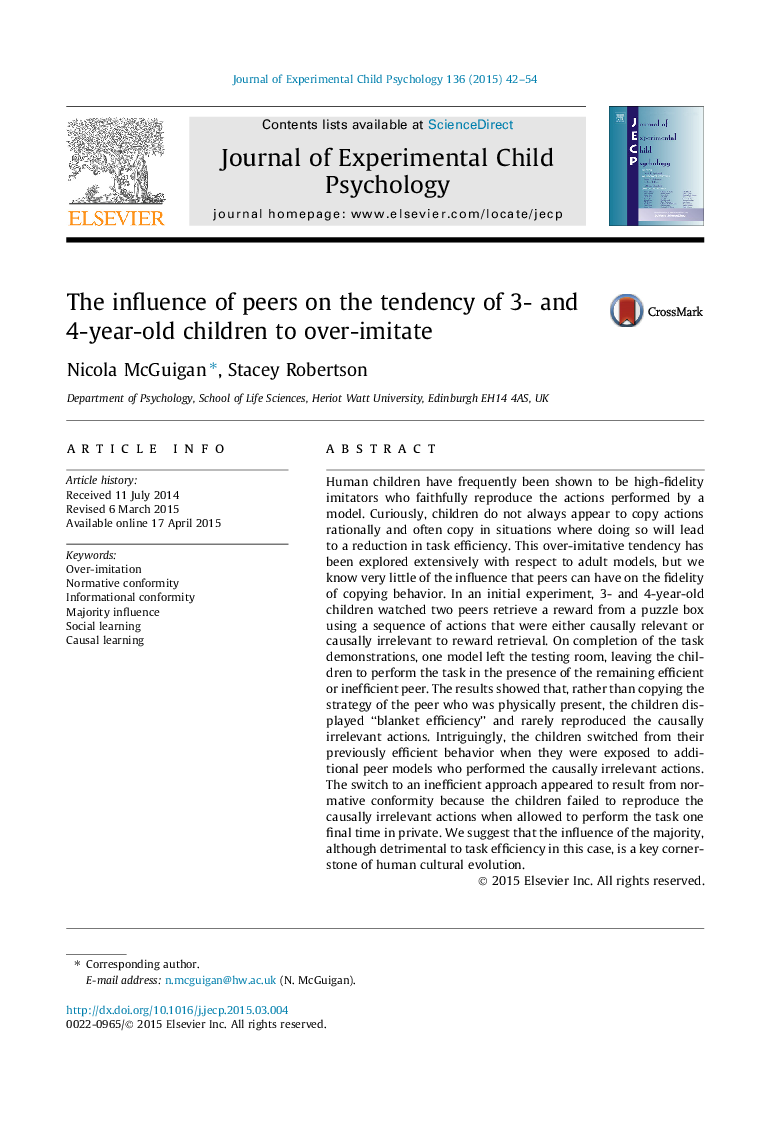| کد مقاله | کد نشریه | سال انتشار | مقاله انگلیسی | نسخه تمام متن |
|---|---|---|---|---|
| 917968 | 1473476 | 2015 | 13 صفحه PDF | دانلود رایگان |
• We explore the link between peer presence, the behaviour adopted by a group majority, and over-imitation.
• Five-year-old children are uninfluenced by the presence of an inefficient peer.
• Five-year-old children copy the inefficient actions used by the majority of their peers.
• Conformity to the peer response is eliminated outside of the experimental context.
Human children have frequently been shown to be high-fidelity imitators who faithfully reproduce the actions performed by a model. Curiously, children do not always appear to copy actions rationally and often copy in situations where doing so will lead to a reduction in task efficiency. This over-imitative tendency has been explored extensively with respect to adult models, but we know very little of the influence that peers can have on the fidelity of copying behavior. In an initial experiment, 3- and 4-year-old children watched two peers retrieve a reward from a puzzle box using a sequence of actions that were either causally relevant or causally irrelevant to reward retrieval. On completion of the task demonstrations, one model left the testing room, leaving the children to perform the task in the presence of the remaining efficient or inefficient peer. The results showed that, rather than copying the strategy of the peer who was physically present, the children displayed “blanket efficiency” and rarely reproduced the causally irrelevant actions. Intriguingly, the children switched from their previously efficient behavior when they were exposed to additional peer models who performed the causally irrelevant actions. The switch to an inefficient approach appeared to result from normative conformity because the children failed to reproduce the causally irrelevant actions when allowed to perform the task one final time in private. We suggest that the influence of the majority, although detrimental to task efficiency in this case, is a key cornerstone of human cultural evolution.
Journal: Journal of Experimental Child Psychology - Volume 136, August 2015, Pages 42–54
